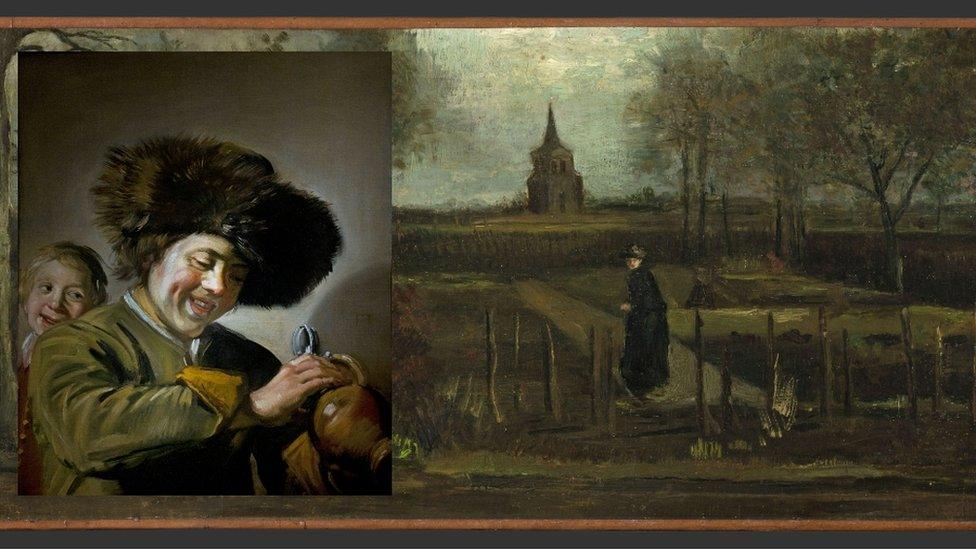Vincent Van Gogh: Newly discovered drawing goes on display
- Published
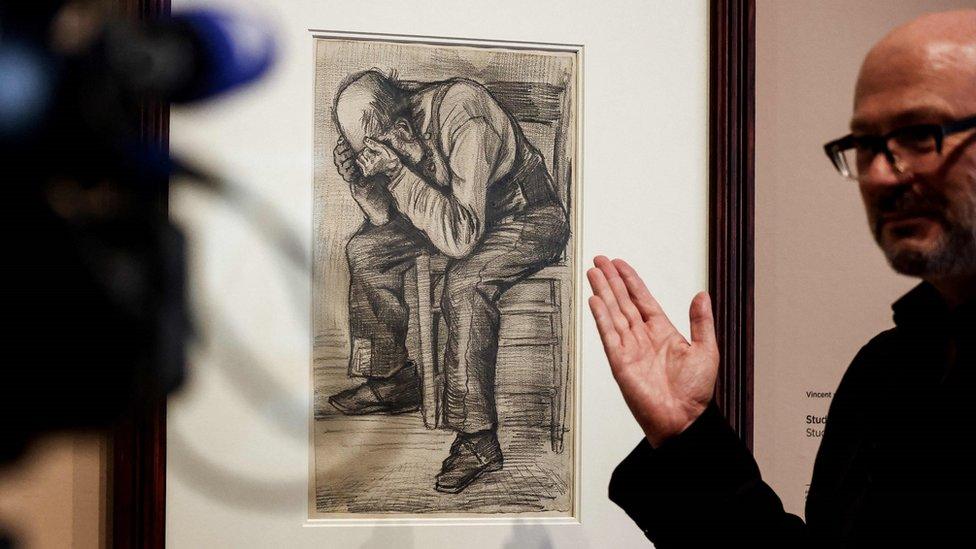
A previously unseen Vincent van Gogh drawing of an exhausted old man has been discovered, a museum dedicated to the artist has confirmed.
Study for Worn Out was drawn early in the artist's career in 1882, the Van Gogh Museum said on Thursday.
The sketch has been been sitting in a Dutch family's private collection for more than a century.
But on Thursday, it went on display at the Amsterdam museum for the first time.
'Out in the open'
The public will be able to see it until 2 January, before it is returned to the private collection.
The small pencil drawing, signed "Vincent", depicts an elderly labourer dressed in a waistcoat, trousers and boots, sitting on a wooden chair with his head in his hands.
"This one has never been seen before anywhere. It's the first time that this drawing is out in the open," said Teio Meedendorp, senior researcher at the Van Gogh Museum.
He told the BBC it was "absolutely impossible" to say how much it was worth.
Van Gogh appeared to have used the drawing as the basis for a slightly different version of the drawing shortly afterwards, which he preferred, and which is currently in the museum's collection under the title Worn Out.
The artist made Study for Worn Out when he was living in the Hague and still learning to draw at around the age of 29. Experts say it offers an exceptional insight into Van Gogh's working process at the time.
'Everything you'd expect'
The museum's director, Emilie Gordenker, said the team were "delighted with this discovery".
"We are very happy to have made a contribution to our specialist field," she added. "It's quite rare for a new work to be attributed to Van Gogh. We're proud to be able to share this early drawing and its story with our visitors."
The owner of the work, who wants to remain anonymous, asked the museum to determine whether the drawing could be attributed to Van Gogh.
In a statement, Meedendorp said: "In stylistic terms, it fits perfectly with the many figure studies we know from Van Gogh's time in The Hague and the connection with Worn Out is obvious.
"The artist began by drawing a grid on the paper, which tells us that he worked with a perspective frame to help him capture a figure quickly with the correct proportions. He then worked the sheet up in his characteristically expressive drawing style: not refined, but with energetic scratches and strokes and laying down contours, in search of a pithy image with special attention to effects of light and shade.
"In terms of the materials, you also find everything you'd expect in a Van Gogh drawing from this period: a thick carpenter's pencil as medium, coarse watercolour paper as support, and fixing with a solution of water and milk.
"There are traces of damage in the corners on the back of the drawing, which we can link to the way Van Gogh customarily attached sheets of paper to his drawing board using wads of starch.'"
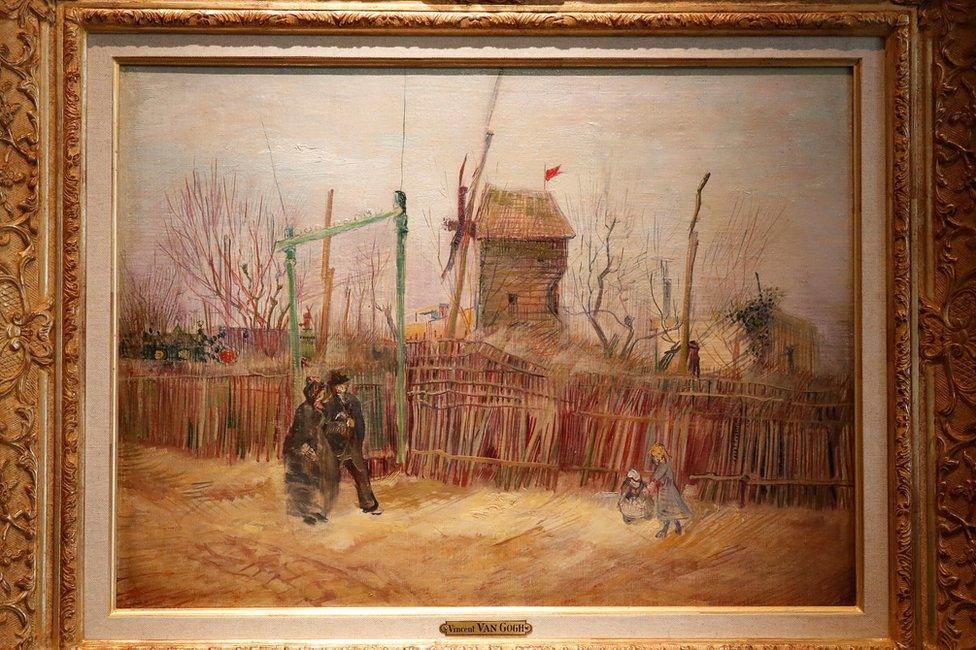
A Street Scene In Montmartre fetched £11.2m at auction in March
The announcement comes six months after a Van Gogh painting of a Paris street went on display for the first time after spending more than 100 years behind closed doors.
A Street Scene In Montmartre has been owned by a French family for most of the time since it was painted in 1887.
The painting went on to fetch 13.09 million euros (£11.2m) at auction in March.
Related topics
- Published26 March 2021
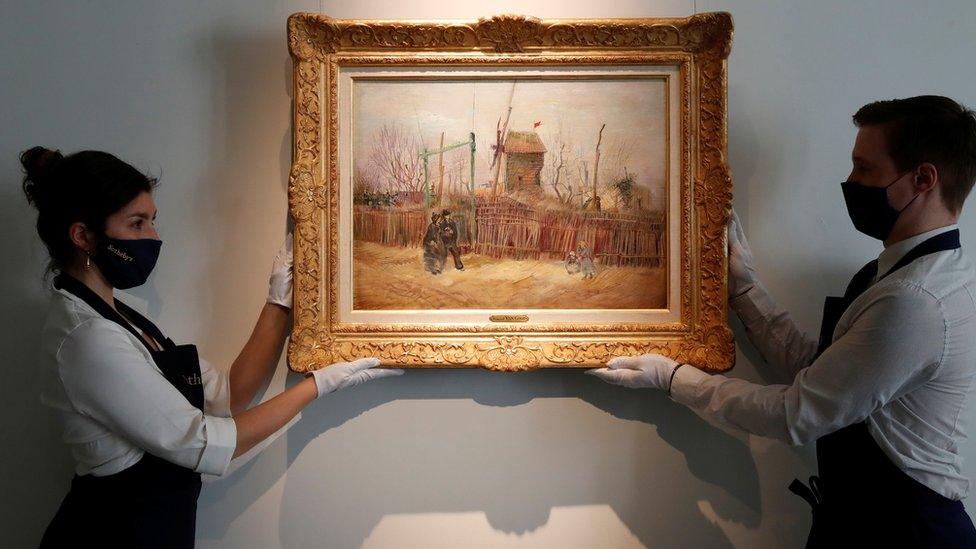
- Published2 November 2020
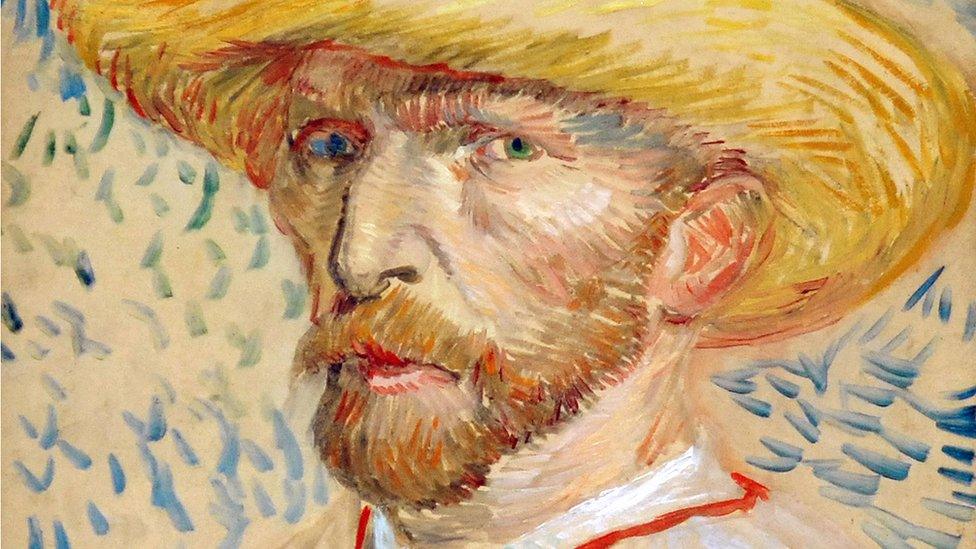
- Published27 March 2019
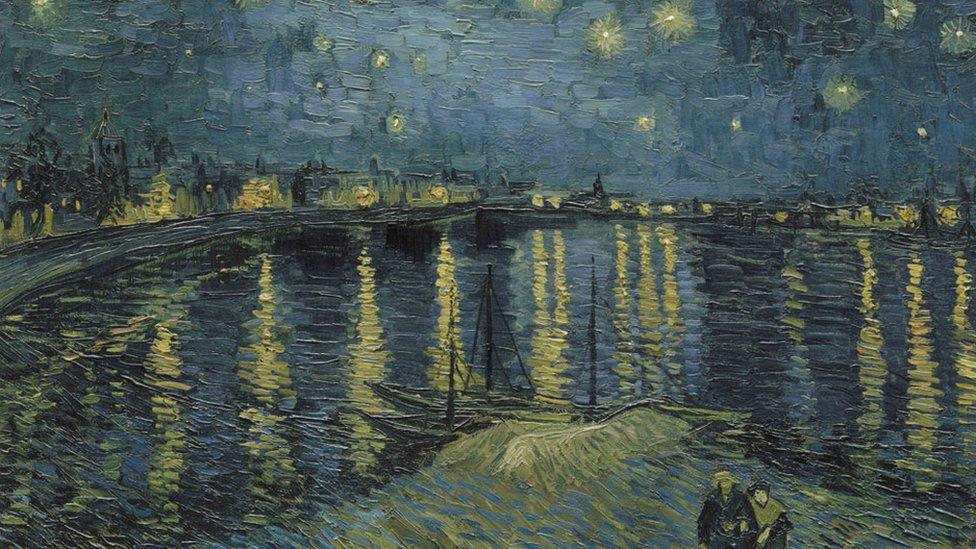
- Published6 April 2021
